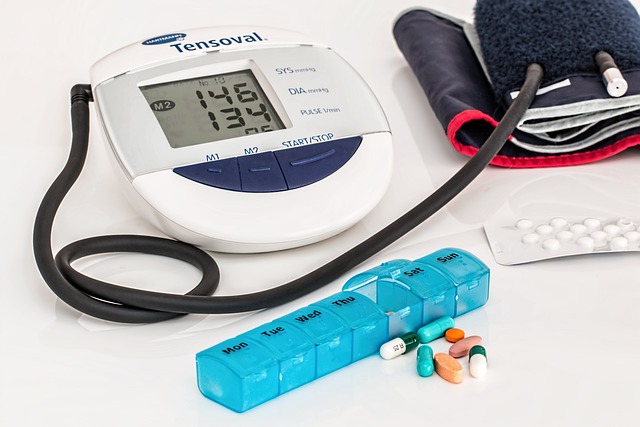Burnout, driven by prolonged stress, causes exhaustion, cynicism, and reduced productivity. Combat it with a holistic approach including balanced diet advice (whole foods, avoid processed food), regular exercise routines, staying hydrated tips, effective stress management (mindfulness practices, quality sleep tips), healthy meal planning with portion control strategies to improve well-being. Early recognition of signs like persistent fatigue is crucial for prevention.
In today’s fast-paced world, striking a work-life balance is crucial to prevent burnout and foster overall well-being. This article guides you through understanding the concept of burnout, its impact on mental health, and common indicators. We offer practical solutions with lifestyle changes tailored for a healthier routine.
From balanced diet advice and regular exercise routines to staying hydrated tips, effective stress management techniques, and mindfulness practices, discover strategies to reduce stress and enhance your quality of sleep. Learn healthy meal planning, portion control strategies, and ways to avoid processed food, ensuring a sustainable path towards a more balanced life.
- Understanding Burnout and Its Impact
- – Definition of burnout
- – Common signs and symptoms
- – Causes and risk factors
Understanding Burnout and Its Impact

Burnout is a state of emotional, physical, and mental exhaustion resulting from prolonged or excessive stress. It often manifests as a sense of cynicism, detachment, and inefficiency at work, coupled with increased irritability and lack of motivation. The impact of burnout extends beyond the individual, affecting overall health, relationships, and even productivity. Chronic stress can lead to serious health issues such as cardiovascular diseases, weakened immune system, and mental health disorders like anxiety and depression.
Addressing burnout involves adopting a holistic approach that incorporates various tips for a healthier lifestyle. Balanced diet advice, such as focusing on whole foods and avoiding processed food, combined with regular exercise routines and staying hydrated tips, can significantly improve overall well-being. Effective stress management techniques like mindfulness practices and quality sleep tips are essential in reducing burnout. Healthy meal planning, including portion control strategies, ensures nutritious intake while promoting a sense of balance and calm.
– Definition of burnout

Burnout is a state of chronic physical and emotional exhaustion resulting from prolonged or excessive stress. It often manifests as a sense of being overwhelmed, emotionally drained, and detached from work and personal life. This condition can significantly impact overall well-being, leading to various health issues if left unaddressed. To combat burnout, adopting a holistic approach that incorporates both lifestyle changes and self-care practices is essential.
Among the tips for a healthier lifestyle, prioritizing regular exercise routines, staying hydrated through adequate water intake, and practicing effective stress management techniques like mindfulness can significantly contribute to reducing burnout. Quality sleep tips, such as maintaining a consistent sleep schedule and creating a relaxing bedtime routine, are also crucial. Balanced diet advice, including healthy meal planning with portion control strategies and avoiding processed food, can improve energy levels and mental clarity. Additionally, incorporating mindfulness practices into daily routines helps in cultivating presence and reducing stress responses.
– Common signs and symptoms

Burnout is a growing concern in today’s fast-paced world, where demands on our time and energy are ever-increasing. Recognizing the signs early is crucial to prevent this. Common indicators include persistent fatigue, a lack of motivation, difficulty concentrating, and heightened irritability or anxiety. These symptoms often reflect an imbalance in various aspects of life, necessitating a proactive approach to reclaim well-being.
Addressing burnout involves adopting holistic strategies that incorporate both physical and mental health practices. Tips for a healthier lifestyle include prioritizing balanced diet advice, such as consuming whole foods and ensuring proper portion control to avoid processed food. Regular exercise routines and staying hydrated tips are essential for boosting energy levels and promoting overall fitness. Effective stress management can be achieved through mindfulness practices and quality sleep tips, which help reset the mind and body. Healthy meal planning, incorporating nutritious ingredients, further supports both physical and mental health.
– Causes and risk factors

Burnout is often a result of an imbalanced lifestyle, where work demands consistently outweigh personal and leisure activities. Several factors contribute to this, including high workload, lack of control over tasks, unclear job expectations, insufficient rewards, and conflicts with work and private life. To mitigate these risks, adopting healthy habits can significantly improve one’s well-being.
Implementing tips for a healthier lifestyle, such as regular exercise routines, staying hydrated throughout the day, and effective stress management techniques like mindfulness practices, can help combat burnout. Balanced diet advice focusing on portion control strategies and avoiding processed food, coupled with quality sleep tips ensuring adequate rest, aids in maintaining energy levels and mental clarity. Additionally, healthy meal planning allows individuals to make nutritious choices, enhancing overall health and resilience against work-related stress.
Achieving work-life balance is key to preventing burnout and fostering overall well-being. By incorporating simple yet effective practices like regular exercise, mindful eating (including balanced diet advice and healthy meal planning with portion control), adequate hydration, quality sleep, and stress management techniques, individuals can create a sustainable lifestyle that enhances productivity and reduces the risk of burnout. These tips for a healthier lifestyle, when integrated into daily routines, have the potential to revolutionize one’s approach to work and personal life, leading to a happier, more fulfilling existence.
